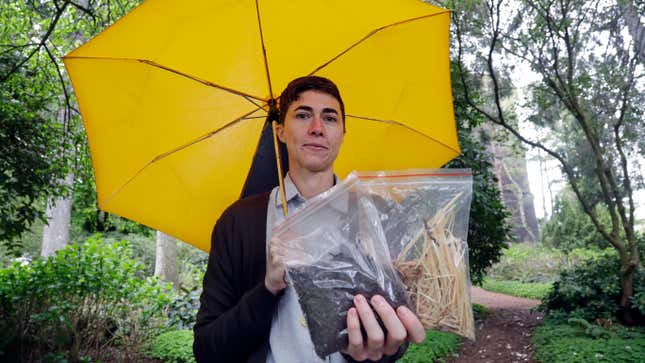
If you’re freaked out by funerals and would rather be gardening instead, you’re in luck. There are now three states in the U.S. where you can legally compost a dead body.
Oregon’s Governor Kate Brown signed HB 2574, which legalizes human composting, also known as natural organic reduction, this week. The idea of composting bodies is relatively new, but it’s picking up steam: Washington became the first state to legalize human composting in 2019, while Colorado followed suit just last month.
Burial is a dirty business, environment-wise. Embalming a body before burial takes around three gallons of embalming chemicals, including formaldehyde, methanol, and ethanol; the U.S. buries around 5.3 million gallons of this stuff with dead bodies each year. While cremation is marketed as a “greener” option than burial, one cremation uses as much energy as burning through around two tanks of gas and produces more than 500 pounds (227 kilograms) of carbon dioxide from the burning process itself. In the U.S., that translates to roughly 360,000 metric tons of carbon dioxide each year.
The way organic reduction works is pretty straightforward (and, honestly, pretty cool). At Recompose, the country’s first composting funeral home in Washington, the body is placed in a special container and surrounded by wood chips and plant material. Then, it’s left alone for 30 days to allow bacteria and microbes to do their work. The resulting remains are then stored to “cure” in separate containers for another few weeks. According to Recompose, the result is one cubic yard of human soil—around a pickup truck load of dirt—which people can then either donate to conservation lands or just use like regular compost.
“That’s been a really neat thing to see, people getting excited about that and saying, ‘you mean I can take that soil home and I can go ahead and go out to Vern’s garden in the backyard and I can make all his plants and his shrubs more gloriously gorgeous with this juicy goodness?’” Elizabeth Fournier, an Oregon-based funeral home owner who has been offering organic reduction services over the state border, told KOIN News. “And the answer is yes.” (“Juicy goodness” is quite a way to market this process, but it does sound pretty cool to use your loved one to make plants grow.)
State Rep. Pam Marsh, one of the cosponsors of the bill, told KOIN that she recognized the potential “business opportunity” for legalizing organic reduction. And frankly, it does look like there could be some serious demand for the service. Recompose, which helped sponsor the bill in Oregon, told KOIN it’s planning to open some locations in the state once human composting is legal (the law set a timeline for next year). The company said in mid-January that eight of its 10 composting vessels were already full, and told Earther last year that it had 350 (still-living) people on a waitlist for its services at the time. Two other companies are gearing up to start operations in Washington.
There are other green burial options, including laying bodies to rest wrapped only in burial shrouds and minus the embalming chemicals, available in other parts of the U.S. But in many ways, the Pacific Northwest may just be the perfect place in the U.S. to introduce composting your loved one.
“This is Oregon! People love their parks, people love their trails, people love their nature, people love their composting and that idea that somebody can become a tree,” Fournier told KOIN. “I think that’s really thrilling for people to know that their remains can absolutely help the environment.”